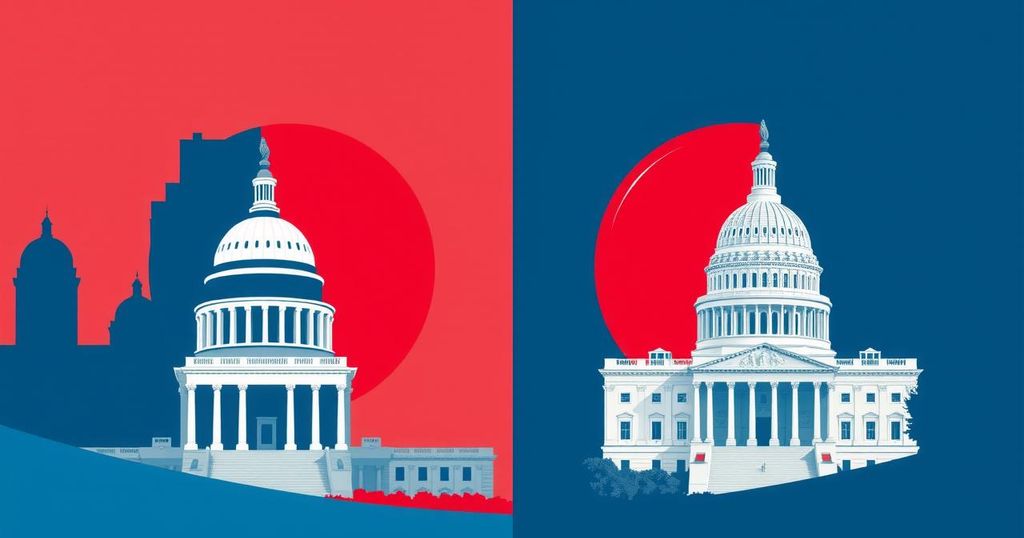World news
AB, ABREGO GARCIA, AP, ASIA, CONGRESSIONAL HISPANIC CAUCUS, DEMOCRATS, ECUADOR, EL SALVADOR, HYATTSVILLE, JOSE LUIS MAGANA, JUSTICE DEPARTMENT, KILMAR ABREGO GARCIA, LA LIBERTAD, LAW, LEGAL ISSUES, LEGISLATION, MURRAY OSORIO, NORTH AMERICA, PHILIPPINES, POLITICS, REPUBLICANS, SOUTH AMERICA, TRUMP, TRUMP ADMINISTRATION, UNITED STATES, WASHINGTON
Lena Nguyen
0 Comments
Kilmar Abrego Garcia Case: A Catalyst for Immigration Debate Among Democrats
The Kilmar Abrego Garcia case has catalyzed a significant debate surrounding immigration policy, due process, and governmental authority in the face of Trump’s administration. Democrats are rallying to defend Garcia, emphasizing constitutional rights and individual liberties, against Trump’s characterization of immigration as a public safety issue. This situation raises broader concerns about the balance between immigration enforcement and due process in the U.S.
The Kilmar Abrego Garcia case is drawing Democrats deeper into the immigration debate that former President Donald Trump seeks to exploit. Garcia, a Salvadoran who lived in Maryland, was mistakenly deported by the Trump administration, sparking a discussion about due process and governmental overreach. Democrats contend that defending Garcia encapsulates core American values, contrasting sharply with the Trump administration’s framing of the issue as a matter of public safety against foreign threats.
The Democratic response to the Garcia case has intensified as various party members rally to defend his rights following his deportation, which they view as an attack on individual liberties. Maryland Senator Chris Van Hollen is directly involved, having traveled to El Salvador to address Garcia’s situation, while other Democratic figures seek to highlight the dangers of harsh immigration policies. This case is emblematic of broader discussions surrounding immigration and governmental authority, especially as the Trump administration continues to invoke security justifications for its policies.
Despite early disunity within Democratic ranks regarding immigration strategy, many have united around the Garcia case, viewing it as a critical opportunity to challenge Trump’s narrative on immigration. With support from several prominent Democrats, they are framing the case as an illustration of excessive government control and the need to uphold due process principles. This has included coordinated efforts to visit Garcia and amplify his plight, signaling a collective commitment to this issue.
The Trump administration has acknowledged that Garcia’s deportation was an error but continues to label him as a criminal associated with gang activity. Trump’s assertion of authority emphasizes a strong stance on immigration enforcement, despite a lack of evidence substantiating claims that most migrants are criminals. This stance resonates with a segment of the public, as indicated by polling data showing significant approval for certain deportation policies, particularly against violent offenders.
Moreover, the ongoing tension between the Trump administration’s policies and judicial rulings poses risks for Trump moving forward. Public perception appears increasingly critical of government defiance of court orders, highlighting concerns about the potential erosion of due process rights. This layered complexity is not merely an immigration debate; it has broader implications for constitutional governance and the separation of powers, as articulated by key Democratic figures involved in the case.
The Kilmar Abrego Garcia case highlights the intersection of immigration policy and fundamental American principles, particularly due process. As Democrats unify to advocate for Garcia against the Trump administration’s stringent and controversial deportation policies, the case has become a flashpoint for larger debates about government overreach and citizen rights. With public opinion polls reflecting skepticism toward defiance of judicial rulings, the outcome of this situation could significantly shape the future of immigration policy and political discourse in the United States.
Original Source: apnews.com




Post Comment